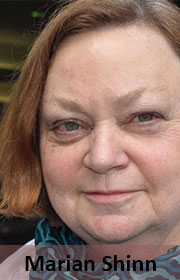 Government’s secret plans for a national wholesale wireless network, which will have exclusive access to high-demand spectrum, must be withdrawn from the white paper on information and communications technology being prepared for cabinet approval and be subjected to public scrutiny in a separate process.
Government’s secret plans for a national wholesale wireless network, which will have exclusive access to high-demand spectrum, must be withdrawn from the white paper on information and communications technology being prepared for cabinet approval and be subjected to public scrutiny in a separate process.
Communications regulator Icasa’s high-demand spectrum auction must be allowed to proceed, after the invitation to apply (ITA) to participate in the auction has been amended to lower the costs of participation and some of the conditions have been revised and corrected.
The spectrum standoff between Icasa and telecommunications & postal services minister Siyabonga Cwele cannot continue delaying the assignment of desperately needed high-demand spectrum. South Africa’s economic growth, service delivery initiatives and pending economic rating cannot be held to ransom by a secret process that seeks to insert crony capitalists into the lucrative mobile broadband market.
The secret plan for government’s wireless open-access network (Wona) is seemingly loosely based on the unproven Mexican experiment with open-access wireless networks may well be unconstitutional and unaffordable, and is likely to be legally challenged all the way to the constitutional court should government try to implement it.
I maintain that it is the minister’s attempt to insert his Wona plan into the white paper so it would be confirmed as government policy that is behind the surprise 15 July gazetting by Icasa to proceed with the spectrum auction it has been working towards for the past three years.
Icasa wanted to get the spectrum assigned efficiently and transparently before the white paper inhibited it and bogged down the sector in years of litigation. It may well be one of the last bold and independent acts Icasa makes before government restructures it to remove its chapter 9 status and gives the minister his wish to have direct control over network licensing and policy.
While the idea of a national wholesale wireless open-access network has been discussed through the ICT policy review process, its desirability and detail about it have not been put to the sector for discussion.
The lack of clarity on financing, management and operating infrastructure for this planned network prompts me to request this plan be withdrawn from the white paper until the minister’s model has been thoroughly and publicly debated.
From discussions with ICT sector players during the past few weeks, I have gained some insight into the minister’s planned network. It will be private-sector-owned by those who choose to join it. Participation will not be restricted to network licence holders, meaning experience in the sector is not a pre-requisite. There is no indication of the nature or value of the investment any of these participants will be expected to bring to the network.
Over-the-top service providers, such as WhatsApp, along with Internet service providers and Google, may be invited to become members. The more than 400 holders of electronic communications network service licences will be expected to join the network if they want access to spectrum.
Spectrum will be treated as a public good over which no one will have ownership and that users can share. It is envisaged that all available spectrum in South Africa will one day be the preserve of the wholesale open-access network to assign.

It is claimed that the network cannot co-exist with large, licensed, market-driven operators, begging the question of what future the minister foresees for MTN and Vodacom should it be established.
This network will have to operate — on a cost-recovery basis — on the significant wireless communications infrastructure currently owned by MTN and Vodacom. Should these companies want access to the high-demand spectrum currently in play, they will need to fold their operations into the open-access network.
There is no detail of how this wholesale network will acquire or use MTN and Vodacom’s extensive, multibillion-rand infrastructure or how any network expansion will be funded, managed or maintained in this high-capital cost environment.
This plan, while offering some innovative ideas on how to include smaller players into the mobile network market, has serious repercussions for infrastructure investment and wholesale network competition so must be robustly and publicly debated.
Unless this matter is promptly resolved, South Africa’s marginalised communities will be further left behind as the digital divide expands to exclude them from e-government services, e-education, employment and entrepreneurial opportunities.
And, while South Africa’s connected communities will continue to be ingenious in exploiting opportunities they identify and grasp via the World Wide Web, they will be unable to do it at the performance level of their international competitors because the bandwidth and speed of access will not be there to support them.
- Marian Shinn is a Democratic Alliance MP and shadow minister of telecommunications & postal services

